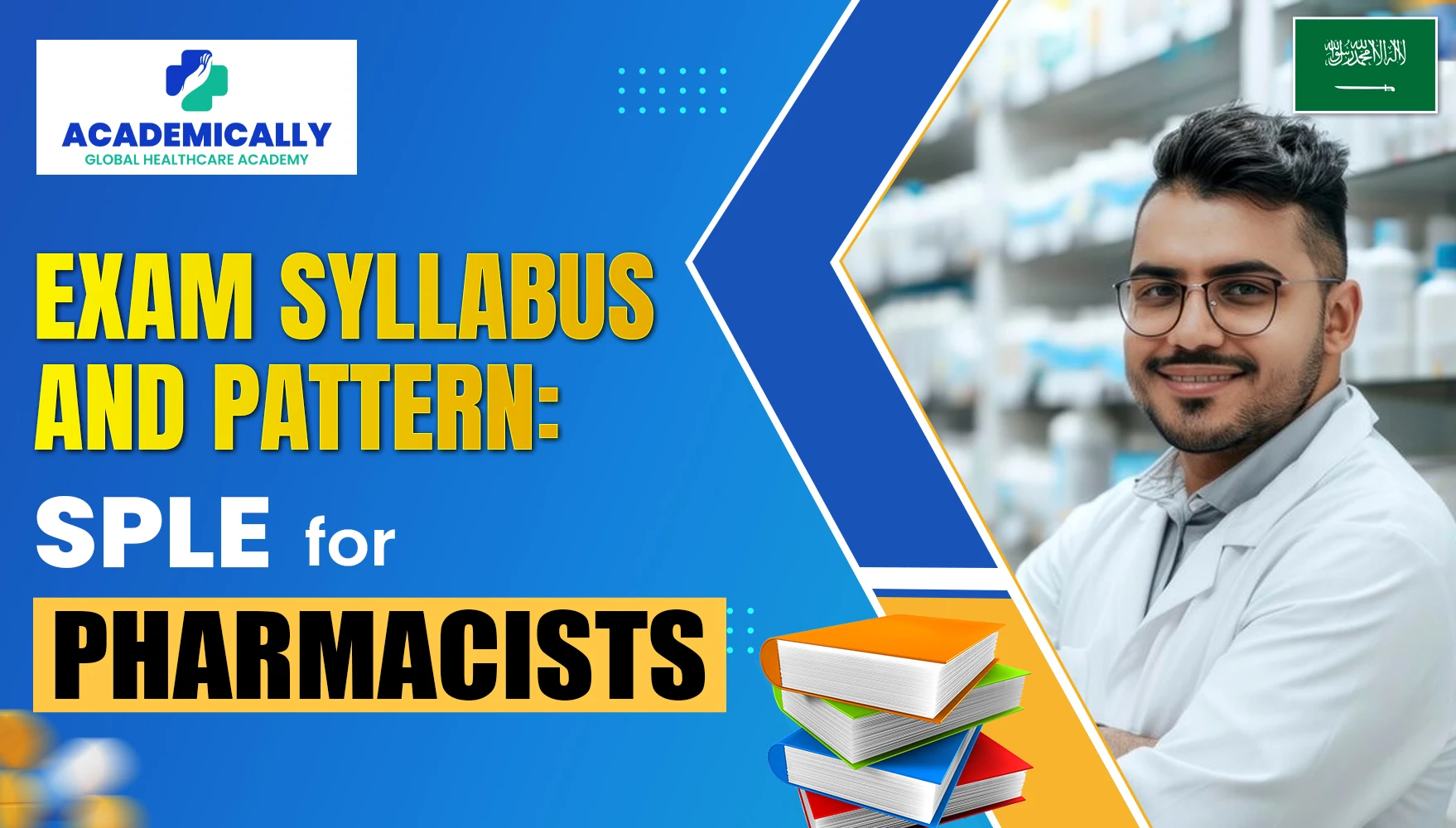Breakdown of the SPLE Content Areas
The SPLE consists of four major pharmacy content areas, each contributing to your overall score. Here’s the percentage distribution of the content areas:
- 10% - Basic Biomedical Sciences
- 35% - Pharmaceutical Sciences
- 20% - Social/Behavioral/Administrative Sciences
- 35% - Clinical Sciences
1. Basic Biomedical Sciences (Approximately 10% of the Exam)
This section tests your understanding of fundamental concepts necessary to practise pharmacy. The topics include:
- Physiology: Understanding major body systems and their functions, and how these systems maintain homeostasis.
- Biochemistry: Knowledge of biomacromolecules such as proteins, lipids, carbohydrates, and nucleic acids, as well as intermediary metabolism.
- Microbiology Related to Human Diseases: Characteristics of microorganisms, including pathogenic microbes and their transmission routes.
- Immunology: Understand the immune system, including innate and adaptive immunity, and principles of antibody action.
2. Pharmaceutical Sciences (Approximately 35% of the Exam)
Pharmaceutical Sciences cover the chemical and physical properties of drugs. Topics include:
- Medicinal Chemistry: This covers the physicochemical properties of drugs, chemical pathways of metabolism, and the drug development process.
- Pharmacology and Toxicology: Understanding mechanisms of action, pharmacodynamics, adverse effects, and drug-drug interactions is very important in this area.
- Pharmacognosy and Dietary Supplements: You’ll learn about natural products and their pharmacological effects, as well as the science behind dietary supplements.
- Pharmaceutics/Biopharmaceutics: This includes the principles of drug delivery systems and formulation.
- Pharmacokinetics: Focus on how the body absorbs, uses, and breaks down drugs.
3. Social/Behavioral/Administrative Sciences (Approximately 20% of the Exam)
This section addresses the societal and behavioural factors that influence pharmacy practice and healthcare delivery:
- Health Care Delivery Systems and Public Health: Understanding the organisation of healthcare systems in Saudi Arabia, along with public health initiatives.
- Population-Based Care and Pharmacoepidemiology: Evaluating drug use and outcomes in large populations and monitoring adverse drug effects.
- Pharmacoeconomics: Understanding how pharmacoeconomic analysis can improve healthcare resource allocation.
- Pharmacy Law and Regulatory Affairs: Knowledge of legal principles governing pharmacy practice and the roles of various regulatory bodies.
4. Clinical Sciences (Approximately 35% of the Exam)
Clinical Sciences focus on the practical application of pharmacy knowledge in patient care:
- Drug Information and Evidence-based Practice: Skills for interpreting drug information and integrating it into patient care decisions.
- Patient Assessment: Techniques for comprehensive patient histories and physical assessments.
- Clinical Pharmacology and Therapeutic Decision Making: Applying pathophysiology concepts to make informed therapeutic recommendations.
- Disease Prevention and Population Health: Understanding non-pharmacologic therapies and the role of immunizations in promoting health.
Exam Structure and Format
The SPLE is a multiple-choice questions (MCQs) based exam that test your knowledge across all of the topics mentioned above. Now let's have a detailed look at the exam pattern:
- Format: Computer-based test divided into two sessions.
- Duration: Each session consists of 150 MCQs, with a total time limit of 2 hours per session. There is a 30-minute break between the two sessions.
- Passing Score: You need to achieve a minimum score of 536 out of 800 to pass the exam.
After completing your exam, you can relax and await your results. Typically, the results are released online within 2 to 6 weeks. Scoring above the passing mark not only qualifies you for licensure but also opens doors to numerous opportunities in the pharmaceutical field.
Preparing for the SPLE
Preparation for the SPLE requires a strategic approach. Here are some effective tips:
- Review the Syllabus Thoroughly: Understand the weightage of each content area and allocate your study time accordingly.
- Utilise Study Resources: Leverage textbooks, online courses, and mock exams tailored to the SPLE syllabus. Joining study groups can also provide support and enhance your learning experience.
- Practice Time Management: Since the exam is time-sensitive, practice answering questions within the allocated time frame to improve your speed and accuracy.
- Stay Updated: Keep abreast of any changes in the exam pattern or syllabus by regularly checking official announcements or guidelines.
- Focus on Weak Areas: Identify your weak points early in your preparation and allocate more time to these subjects.
Conclusion
Successfully passing the SPLE is a significant milestone in your journey to becoming a licensed pharmacist in Saudi Arabia. With its rigorous evaluation of your knowledge in pharmaceutical sciences, clinical practices, and healthcare delivery, the SPLE is designed to ensure that you are well-prepared for your professional role.
At Academically, we are dedicated to supporting your journey to pharmacy licensure. Our resources and guidance will equip you to excel in the SPLE, paving the way for your successful career in pharmacy.
By understanding the exam syllabus and pattern in detail, you are one step closer to achieving your dream of becoming a licensed pharmacist in Saudi Arabia. Prepare well, stay focused, and you will succeed!






